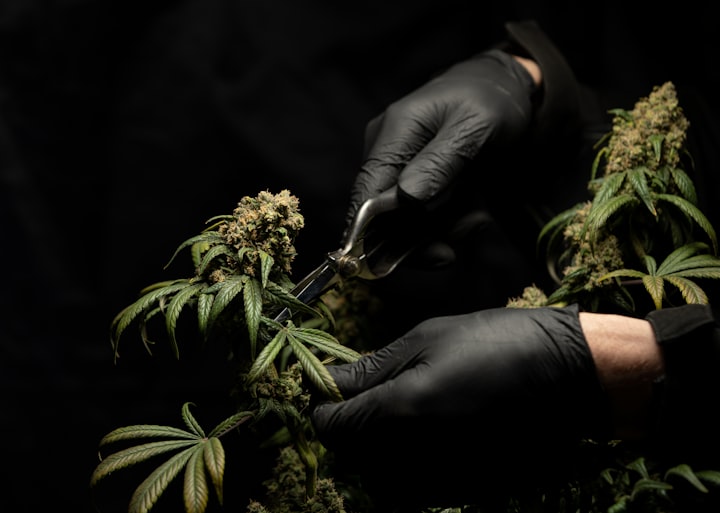How Long Does Weed Stay in Your System?
Understanding the Duration of Marijuana's Effects on Your Body: A Guide to How Long THC Stays in Your System

Marijuana, also known as weed, cannabis, or pot, is a widely used recreational and medicinal drug. Whether you are a regular user or have recently consumed weed, you may wonder how long it stays in your system. The duration that weed remains detectable in your body depends on various factors, including the frequency and amount of usage, metabolism, and the type of drug test conducted.
In this comprehensive guide, we will explore the different methods of drug testing and discuss the approximate timeframes for weed detection in various bodily fluids.
So, let's delve into the details and shed light on the question, "How long does weed stay in your system?"
Understanding Weed Metabolism
Before we discuss the duration of weed detection, it's important to understand how weed is metabolized in the body. The psychoactive compound in marijuana, delta-9-tetrahydrocannabinol (THC), is primarily responsible for its effects. When you consume weed, THC enters your bloodstream and is carried to different organs, including the brain, where it interacts with cannabinoid receptors.
Factors Affecting Weed Detection Time
Several factors influence how long weed stays in your system. These factors can vary from person to person and can impact the duration of detection. Let's take a closer look at some of the key factors:
a. Frequency of Use: Regular and heavy users may have weed detectable in their system for a longer period compared to occasional or one-time users.
b. Method of Consumption: The way you consume weed can also affect its detection time. Smoking or vaporizing marijuana leads to a quicker onset of effects but may also result in a shorter detection window compared to edibles or other forms of consumption.
c. Body Fat Percentage: THC is fat-soluble, which means it gets stored in fat cells. Individuals with higher body fat percentages may retain THC metabolites for a longer duration.
d. Metabolism and Overall Health: Metabolic rate and overall health can influence how efficiently your body eliminates THC. People with faster metabolisms tend to clear THC more quickly.
e. Drug Tolerance: Regular users may develop a tolerance to marijuana over time. While tolerance doesn't affect the detection of weed in drug tests, it can impact the subjective effects experienced.
Different Methods of Drug Testing
Various methods are employed to detect the presence of weed in the body. The most common types of drug tests include:
a. Urine Testing: Urine tests are the most frequently used method for detecting weed. THC metabolites can be detected in urine for an extended period, ranging from a few days to several weeks, depending on usage patterns.
b. Blood Testing: Blood tests are typically conducted to determine recent marijuana use. THC is quickly metabolized, and its presence in the bloodstream decreases rapidly within a few hours to a few days after consumption.
c. Saliva Testing: Saliva tests are less common but provide a shorter detection window compared to urine tests. THC can be detected in saliva for up to 24-72 hours after use.
d. Hair Testing: Hair tests can detect marijuana usage over a longer period, as THC metabolites become trapped in hair follicles. Weed can be detected in hair samples for up to 90 days or even longer.
Approximate Timeframes for Weed Detection
While the duration of weed detection can vary based on individual factors, here are some general timeframes for weed detection in different bodily fluids:
Urine: Weed can be detected in urine for 3-30 days, depending on factors such as frequency and amount of use.
Blood: THC is detectable in the blood for a shorter duration compared to urine. It can typically be detected within a few hours to a few days after use, but heavy and chronic users may show positive results for up to a week or more.
Saliva: Weed can be detected in saliva for up to 24-72 hours after use. However, the detection window may be shorter for occasional users.
Hair: Hair tests offer the longest detection window. THC metabolites can be detected in hair samples for up to 90 days or even longer, depending on the length of the hair strand tested.
Ways to Speed Up Weed Clearance
If you are concerned about weed detection in drug tests or simply want to expedite the clearance of THC from your system, here are a few tips that may help:
Hydration: Drinking plenty of water and staying well-hydrated can potentially flush out toxins, including THC metabolites, from your system.
Exercise: Engaging in regular physical activity can boost your metabolism, aiding in the elimination of THC.
Healthy Diet: Consuming a balanced diet rich in fruits, vegetables, and fiber can support overall detoxification processes in your body.
Time: Ultimately, time plays a crucial role in clearing weed from your system. With abstinence from marijuana, the body gradually eliminates THC metabolites over time.
Conclusion
Determining how long weed stays in your system is a complex process influenced by various factors. The duration of weed detection can vary depending on the type of drug test conducted, frequency of use, method of consumption, metabolism, and overall health. While urine tests are the most common method for detecting weed, blood, saliva, and hair tests offer alternative approaches with different detection windows.
Additionally, it's always recommended to consult with healthcare professionals or testing experts for accurate and personalized information regarding weed detection in your system.
Remember, if you are subject to drug testing, it is essential to make informed decisions regarding marijuana usage based on the specific policies and regulations of your workplace, jurisdiction, or any other relevant organizations.






Comments
There are no comments for this story
Be the first to respond and start the conversation.